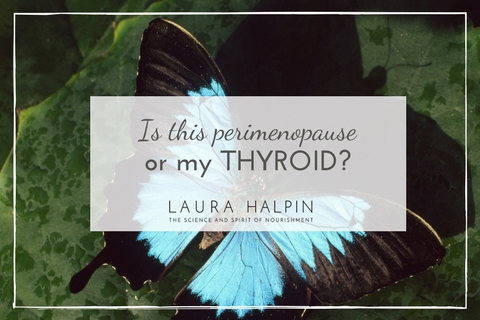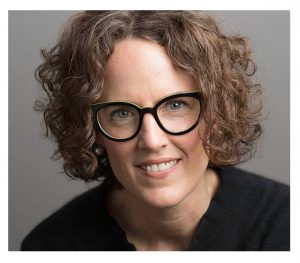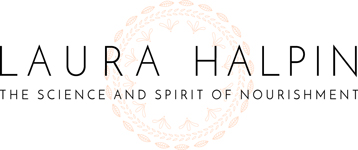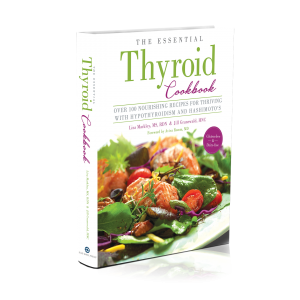
Is this perimenopause or my thyroid?
This guestblog is written by Jill Grunewald, HNC, co-author of The Essential Thyroid Cookbook.
There comes a time in many women’s lives where they ask themselves, “Is this perimenopause?”
They’ll say, “I’ve lost my edge—I haven’t felt like myself for a while.” They may feel unusually down and fatigued. Or even depressed. And perhaps a little anxious at the same time. Or irritable. There’s the extra few pounds around the middle, the mood swings, the low libido, the dry skin that’s lost some of its luster, and the irregular or heavy menstrual cycles.
To varying degrees, these worries are pretty rampant for “modern” women who are “doing it all” and trying to be all things to everyone. It’s easy to chalk at least some of these symptoms up to “getting older.” For many women, being in pre-menopause or being perimenopausal means “getting older.”
(Quick pause for definitions: pre-menopause means nearing the age of 51 (the average age of menopause) and perimenopause means there are (sometimes hair-raising) symptoms associated with the hormonal shifts that accompany these pre-menopausal years.)
I don’t believe that women in their 40s and 50s (or even 60s or 70s for that matter) are “old.” Puh-lease!
Part of the problem lies in the fact that we have a conventional medicine community who’s way too quick to say, “Well, sorry Lady, this is what happens when you get older.” Pffft.
Keep in mind, the word “perimenopause” wasn’t uttered until the late 1970s and its use, like the symptoms that accompany it, has spiked dramatically, so much so, that it’s a household word (at least for women experiencing this hormonal upheaval and the people who love them).
First Things First
When women feel that none of their individual symptoms are “bad enough” to warrant seeing their doctor, they can suffer needlessly. Because taken collectively (a little of this, a little of that), it can point to hypothyroidism—a problem that can certainly be addressed, helping you feel like yourself again.
Sure, all women begin to see systemic shifts in their reproductive hormones (progesterone and estrogen) after the age of 35 or so, but we weren’t meant to live with life-altering symptoms day in day out, month after month. Or for some, year after year. In fact, many experts in the functional medicine community say that a woman’s thyroid, adrenal, and hydration status has everything to do with how she moves through this time of life.
The nice thing is that for many, they treat the hypothyroidism and see improvement across the board, including a completely renewed zest for life. Even subclinical low thyroid function (pre-symptomatic, slightly low thyroid hormone values) can riddle our pre-menopausal years with perimenopausal symptoms.
What is the Thyroid?
The thyroid is a butterfly-shaped gland in our neck and it’s a tiny yet mighty player in our endocrine (hormonal) symphony. Many experts refer to it as “the master gland of metabolism” and I’ve often referred to it as the spoon that stirs our hormonal soup.
Every cell in our body has receptors for thyroid hormone—so it’s easy to understand how even subclinical low thyroid function can have an effect on so many of our body’s systems, such as steroid hormone production, glucose metabolism, body temperature regulation, energy, and reproductive hormones (the ones that start naturally declining after the age of 35).
Don’t Guess, Test
If you’re experiencing symptoms—even mild symptoms—that have you feeling like you’re not quite yourself, I’d suggest getting a full thyroid panel, stat. Some of you may be reading this, thinking, “But my doctor tested my TSH (thyroid stimulating hormone) and said that I’m fine—I don’t have a thyroid problem.”
Please know that TSH tells a very small part of the story. It should always be considered in the context of other thyroid hormones to discern what’s really going on, especially given that you can have “normal” TSH and still be hypothyroid.
Additionally, it’s estimated that 30 million women alone have Hashimoto’s (autoimmune hypothyroidism), which is the most common form of thyroid dysfunction. Therefore, in addition to a full thyroid panel, it’s critical to also test for thyroid antibodies.
Here’s my suggested panel:
- TSH
- Free T3 *
- Free T4 *
- Reverse T3
- Thyroperoxidase antibody (TPOAb)
- Thyroglobulin antibody (TgAb)
* Free T3 and T4 are different than Total T3 and T4—the “free” tells you what’s unbound and available for your body to use.
Ground Zero: Thyroid Nutrition
Some reading this may have already been diagnosed with hypothyroidism or Hashimoto’s. Some may be on thyroid hormone replacement and some not. Regardless, the thyroid is extremely nutrient dependent and being mindful of your diet is critical for managing hypothyroidism and Hashimoto’s—which in turn, can help women glide through “the change” (and those pre-change years) as unscathed as possible.
Remember, many functional medicine experts claim that a woman’s thyroid, adrenal, and hydration status has everything to do with how she moves through her pre-menopausal years.
I’ve seen it over and over, time and time again—women even with clearly defined perimenopausal symptoms like hot flashes and night sweats see their symptoms disappear or greatly diminish simply by focusing on their thyroid and adrenal health and drinking enough water.
Eating minimally processed foods that naturally contain supportive vitamins, minerals, and phytonutrients is, hands down, one of the best ways to support the thyroid, immune system, and entire endocrine system.
I spent many hair-splitting weeks nerding out on the ultimate thyroid and immune nutrition and foods rich in those nutrients. This nitty gritty research and data got transformed into a different type of beautiful butterfly, the “nutritional springboard” for my cookbook, The Essential Thyroid Cookbook.
All of this research became the foundation upon which this first-of-its-kind resource was built, leaving no doubt in our readers’ minds that the recipes are uniquely beneficial to your thyroid and immune system. The recipes will support you for a lifetime of peak thyroid function no matter where you are on your wellness journey—and for those of us in those “pausal” years (I’m 48!), help us get through this time of life the way that nature intended us to: calmly and peacefully, with vim and vigor.

Jill Grunewald, HNC, is an integrative nutrition and hormone coach, women’s health expert, and best selling author of The Essential Thyroid Cookbook.
Our next
Virtual Book Club meeting
featuring
The Essential Thyroid Cookbook
on Monday, November 13 at 6:00 PM.




